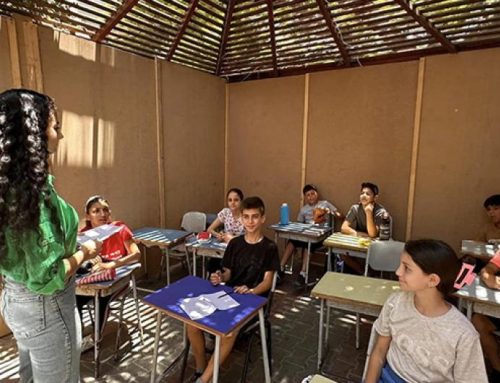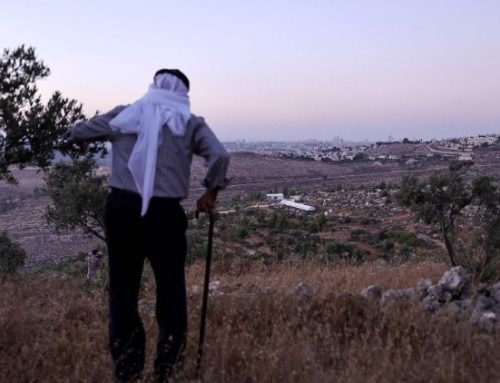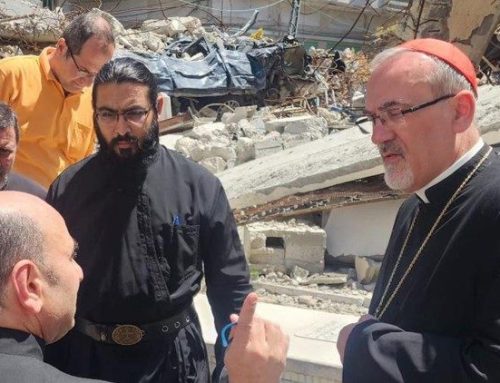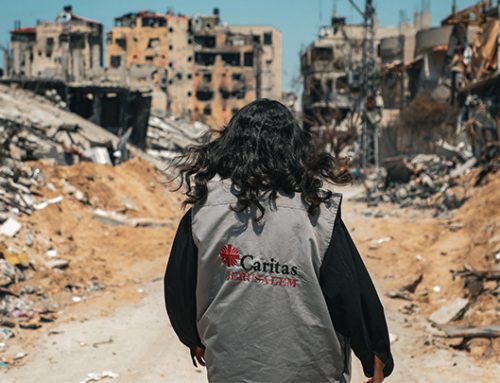The current situation in the Palestinian Occupied Territories is not bearable nor is it tenable. Some would argue that the infighting between Fatah and Hamas in the Gaza Strip is proof that Palestinians cannot govern themselves.
The current situation in the Palestinian Occupied Territories is not bearable nor is it tenable. Some would argue that the infighting between Fatah and Hamas in the Gaza Strip is proof that Palestinians cannot govern themselves. The fact of a crisis laden Palestinian National Authority with a Unity Government that is painstakingly attempting to normalize relations internally and with the international community does not add to a feeling of comfort among Palestinians. In such a context, self criticism is easy to come by and some would go to the extent of seeking answers and solutions from others, whether Arab brothers or European philanthropists. But such criticism combined with wishful thinking of the possibilities of outside intervention, if it comes in the form of peace keeping force, fails to consider that the crisis facing Palestinians nowadays has been created by no other than some of these European philanthropists in concert with policy makers in Washington and Tel Aviv. But aside from the political and financial boycott mounted against the democratically elected Palestinian government, Israel has not shown readiness to go to a full truce in all of the Occupied Territories, similarly to the truce that was holding in the Gaza Strip prior to this latest barrage of Qassam rockets and Israeli military retributions. Palestinians are in support of a full truce that would encompass both the Gaza Strip and the West Bank and this should remain an objective to achieve. Almost two-thirds of Palestinians recently polled, on May 17 – 19, by the Center for Opinion Polls and Survey Studies of Najah National University in Nablus support a return to a truce with Israel.
While Palestinians need to be more pragmatic in advancing their interests and providing for some sense of economic stability and social harmony, this cannot be accomplished without realizing that relations with Israel are so much more complex than simply to satisfy ideological positions and propagandist declarations. In fact a majority of Palestinians are beyond being lured by high pitched political statements that confirm only an impasse situation with no prospects or hopes for a way out. This was perhaps the most serious drawback of the Hamas led government that preceded the National Unity Government that was sworn in on March 17th of this year. While Palestinians are ready to be realistic they are not ready to surrender their rights. Our struggle is to end Israeli occupation once and for all and to secure the inalienable rights of our people, wherever they are. If pragmatism and realism do help us accomplish these goals then all much the better for adopting them.
Israel is not willing to seriously consider the American “confidence-building benchmarks” document presented a month or so ago to both Israel and the Palestinians by the State Department. Israel is reportedly being asked to ease travel restrictions in the West Bank and at Gaza crossing points in stages over the next several weeks. The Palestinian Authority, meanwhile, is to take specific steps against arms smuggling into Gaza, and to develop a plan by June to stop missile firings into Israel by militants in Gaza, and to deploy forces there to implement it. The preoccupation of Israel with security issues rather than those of comprehensive peacemaking could also explain why the planned bi-weekly meetings between President Mahmoud Abbas of the Palestinian National Authority and Israeli Prime Minister Ehud Olmert have not been successful and, in fact, may happen from now on at longer intervals of time. Washington is not unanimous on the implementation of the proposed confidence-building benchmarks by Israelis. The weight is placed on the Palestinian President’s office to make Israelis feel more secure and, accordingly, even US aid given to the Palestinians is justified by just that.
Clearly though this is not a recipe for success as it leaves a void that can only be filled with more chaos, disorder and confrontation not simply among Palestinians but across borders between Palestinians and Israelis as well. The Arab Peace Initiative adopted by the Arab Summit Conference in Riyadh, Saudi Arabia is possibly a promising way out. But on the surface of it no one knows what is happening and who is seriously pursuing the Initiative and who is blocking it. The theatricals of Israeli politicians talking about it, even when they appear with Arab politicians in international fora, leave one rather confused than impressed. For an average observer, Israel seeks to establish relations with more Arab countries and to have wider recognition in the Arab and Moslem world than to strike a real peace agreement with its Palestinian neighbors.
Palestinians have an address, and a clear one at that, for resolving peace and war issues with Israel. This comes across from the recent Najah University Poll where 46% of the Palestinians rated the performance of the Presidential Institution as “good” in contrast to only 26% to the Government and 22% to the Legislative Council. The Palestinian President, Mr. Mahmoud Abbas who is also Head of the PLO, is entrusted to conduct political negotiations with Israel. There is agreement among Palestinians that if and when a genuine peace agreement is reached with Israel this would be referred to the people and to the relevant representative institutions for their approval. The overwhelming majority of Palestinians want to see a breakthrough in the peace process, irrespective of the dismal internal political situation. An agreeable peace accord with Israel would tremendously improve overall conditions and would make the proposed truce with Israel a permanent reality. This may sound too simplistic or wishful thinking as the road to negotiations have tremendous hurdles that some, on all sides, believe are insurmountable. The problem though is not in wishful thinking but rather in the mounting frustration felt by many on all sides because of inaction on peacemaking at the highest political levels, particularly in Washington and Tel Aviv but also in the EU Community. Lip service for peace abounds but in the end the test that peace is possible is laid back onto the Palestinian President and Palestinians in general. They are expected to deliver particularly on the security issue while the more powerful Israeli neighbor/occupier can continue with all kinds of policies and measures intended to contain and control Palestinians. So Palestinians are placed in the most difficult position: as they express genuine desire and eagerness for peace and as they are suffering a prolonged military occupation they are also asked to provide Israel with a hermetically guaranteed security. Only then would Israel feel comfortable and would possibly ready itself for talks with the “well behaved” Palestinians. Meanwhile Israel continues to exercise its prerogative agenda of separation, hundreds of checkpoints, expansion of Jewish settlements in the West Bank and other measures of dispossession of Palestinians and their land. This situation certainly spells further frustration and disappointment among Palestinians as it seriously weakens not only the Presidential Institution but other Palestinian governing institutions as well. Israeli measures on the ground in the Occupied West Bank, whether by plan or serendipitously, are eroding both the possibility and feasibility of a two-state solution. The resulting cantonization of West Bank towns, villages and communities and their separation from each other and from their rural and commercial hinterlands would in the long run become ripe ground for the development of extremist groups bent on confronting Israeli occupation and the expanding Israeli Jewish settlement of Palestinian lands. On the Israeli side, Israel would increasingly be characterized as having turned its back to values so long cherished by its own people in their long and complex history and experience because of the ways of separation and control that it chooses to continue to exercise over the Palestinians and their land.
In such a context, diversionary voices that promote the idea of outside peace keeping forces or of other solutions that do not emanate from the realities on the ground are really oblivious to the essential conditions and requirements necessary for genuine peace making. In fact, these voices fail to understand the lessons of history which go counter to the imposition of outside powers and their will over the will of a people intent on ending occupation and establishing its own state. One cannot discount the participation of Arab and or an international peace keeping force after a peace agreement has been signed but absolutely not prior to that. One also does not discount all forms of economic and other regional arrangements that can promote genuine peace and facilitate healing and reconciliation after a peace accord has been reached.
Israel, the Palestinians, the Arab countries and the International Community are all called upon to press ahead with the peace process, irrespective of conditions on the ground. To acquiesce to the current situation of inaction and to propose hypothetical solutions away from the exercise of Palestinians of their inalienable rights would only lead to more disasters and to a not too promising future to all in this part of the world. What is needed NOW is to give peace a chance and this cannot be accomplished without seriously engaging the Palestinian President and the Palestinian people.





